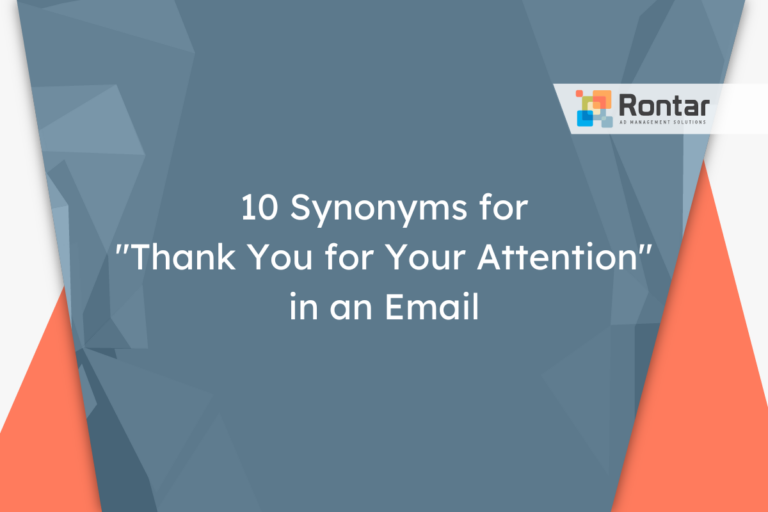15 Synonyms for “Did You Know”

Sharing information in a way that catches attention can be challenging. “Did you know” is a common phrase used in both casual and professional settings to spark interest. However, there are many alternatives that can better suit different situations and tones.
This article will explore 15 different ways to say “did you know,” offering examples and guidance on when to use each.
Is It Professional to Say “Did You Know”?
The phrase “did you know” can be professional, formal or informal, and polite depending on how it is used. In professional settings, it’s seen as a light, engaging way to share information or start a conversation. This phrase fits well in situations where you aim to inform or spark curiosity without being too direct or abrasive.
Using “did you know” is appropriate with various types of recipients or correspondents, like colleagues, clients, or during presentations. It works across different communication channels, including emails, memos, newsletters, or even in meetings. However, the level of formality might dictate how often and with whom you use this phrase.
Here’s an example of how “did you know” could be used in a professional email:
Hello team, Did you know that our team exceeded its quarterly goals by 10%? This achievement puts us in a great position for the upcoming quarter. Best regards, Emily
Now, let’s consider the pros and cons of using “did you know.”
Pros:
- Engages the reader’s interest immediately.
- Makes facts or information feel more intriguing.
- Encourages further reading or conversation.
Cons:
- May seem too casual for very formal settings.
- Overuse can lessen its impact.
- Not always the right tone for serious or sensitive information.
Someone might want to use an alternative phrase to “did you know” if they want to match a very formal tone or are addressing a sensitive topic where a direct approach is needed. Looking for synonyms or alternatives allows for better tailoring of communication style to match the audience and context perfectly.
15 Other Ways to Say “Did You Know”
Looking for different ways to present information? Here are fifteen alternatives you can use:
- For your information
- As you may already know
- I wanted to bring to your attention
- Just a heads-up
- Are you aware
- It’s worth noting
- I thought you might like to know
- I’d like to point out that
- For your reference
- Perhaps you’re already aware
- As you might not be aware
- In case you weren’t aware
- You might not know this, but
- Have you been informed
- Have you heard
1. For your information
This alternative is more formal and professional compared to “did you know,” making it suitable for business communications where you need to assert information with authority.
It’s particularly effective in emails where you are sharing critical updates or corrections. This phrase works best with colleagues or stakeholders in a professional setting, especially in written formats like reports, emails, or official notices.
Here’s a sample email using this phrase:
Hi Alex, For your information, our next team meeting has been rescheduled to Friday. Best, Laura
2. As you may already know
This alternative strikes a balance between being informal and polite, with a touch of formality, making it versatile for various communication channels. It subtly acknowledges that the recipient might be informed, thereby respecting their knowledge or position.
Use this phrase when providing updates or reminders. It’s best suited for colleagues or clients with whom there is mutual respect and understanding. Ideal for emails, presentations, or meetings, it helps to reaffirm information or introduce new details.
Here’s an example message:
Hello team, As you may already know, we are updating our software next week. Thanks, Daniel
3. I wanted to bring to your attention
This phrase is more formal and professional. It emphasizes the importance of the information being shared and is perfect for highlighting critical issues or updates.
It’s suitable for use in professional emails or reports, especially when addressing higher-ups or stakeholders. This alternative ensures the message is seen as vital, demanding immediate attention or action.
Example:
Hello Team, I wanted to bring to your attention the upcoming audit dates. Regards, Helen
4. Just a heads-up
This synonym is more informal and conveys a friendly forewarning about something. It’s lighter in tone, making it suitable for less formal settings or with colleagues you have a friendly relationship with.
It’s great for emails, instant messages, or in-person chats when you want to casually inform or remind someone about something without being too formal. It’s also perfect for internal team communications.
For example:
Hey, Just a heads-up, we're moving the weekly catch-up to Thursday. Cheers, Tom
5. Are you aware
Compared to “Did You Know,” “Are you aware” feels more direct and personal. It implies that the information following might be of specific interest or importance to the listener or reader.
This alternative is more suited for professional and formal settings, especially when you want to engage the recipient in a conversation. It works well in meetings, emails, and reports when addressing colleagues or clients who might benefit from the information shared.
Email example:
Hello Team, Are you aware that our company will be launching a new wellness program next month? We encourage everyone to participate. Best regards, Emily
6. It’s worth noting
“It’s worth noting” introduces information as valuable or noteworthy, emphasizing its importance without assuming the recipient’s prior knowledge.
This phrase is versatile, fitting both formal and informal contexts. It’s particularly effective in presentations, emails, or reports where the goal is to highlight key information in a polite yet assertive manner.
Email example:
Hello Mark, It's worth noting that the deadline for the project submission has been moved up to this Friday. Warm regards, Sara
7. I thought you might like to know
This synonym offers a softer, more personal approach. It suggests that the information is shared out of consideration for the recipient’s interest or benefit.
It’s perfect for informal communication among friends or colleagues. This alternative shines in emails or messages where adding a personal touch is appreciated and fosters a friendly atmosphere.
Email example:
Hi Sophia, I thought you might like to know that the book club meeting has been rescheduled for next Wednesday. Cheers, Liam
8. I’d like to point out that
“I’d like to point out that” is more formal and assertive. It’s used to draw attention to a specific detail or fact that is considered important for the recipient to understand or act upon.
This alternative is best used in professional settings where clarity is paramount. It works well in written reports, formal emails, or presentations where critical information needs to be emphasized.
Example:
Dear Colleagues, I'd like to point out that the compliance training is mandatory for all new hires. Best, Jordan
9. For your reference
“For your reference” implies that the information provided is meant to aid understanding or decision-making. It positions the information as a resource rather than just a fact.
This phrase is ideally suited for professional contexts, especially in emails or documents where providing additional resources or data is helpful. It encourages the recipient to consider the information in their work or decisions.
Example:
To All Staff, Attached is the project timeline for the upcoming quarter. For your reference, please review the deadlines for each phase. Regards, Natalie
10. Perhaps you’re already aware
“Perhaps you’re already aware” is a polite and cautious way of introducing information. It acknowledges the possibility that the recipient might know the information, showing respect for their knowledge or experience.
This alternative is suitable for formal and informal exchanges. It’s especially effective in emails or meetings where you want to share information without appearing presumptuous.
Email example:
Dear Professor Thompson, Perhaps you're already aware, but the department meeting has been rescheduled for next Friday. Sincerely, Alex
11. As you might not be aware
Using “As you might not be aware” introduces information on the assumption that it may be new to the recipient. It’s a gentle way of sharing knowledge without assuming the recipient’s level of awareness.
This phrase is a great choice for both professional and informal communications. It works well in emails, newsletters, or during conversations, particularly when you are providing helpful or critical updates.
Dear Residents, As you might not be aware, the water supply will be temporarily shut off tomorrow for maintenance. Best, The Management Team
12. In case you weren’t aware
“In case you weren’t aware” is another polite and cautious introduction to information. It’s similar to “Perhaps you’re already aware” but with a slight emphasis on the possibility of the news being unknown to the recipient.
This phrase is suitable for informal and professional communications and can be used in emails or conversations. It’s particularly effective when ensuring that important information is not overlooked.
Email example:
Hi everyone, In case you weren't aware, tomorrow's team lunch has been moved to the larger conference room. Best, Olivia
13. You might not know this, but
This alternative starts a conversation with a sense of sharing a secret or less-known fact. It creates an intimate tone, suggesting the speaker is about to reveal something special or unexpected.
It’s great for informal contexts, like chatting with friends or acquaintances. This phrase can spark interest and make casual conversations more engaging, especially in messages or emails.
Example:
Hey Jake, You might not know this, but our favorite coffee shop is introducing a new blend next week. Take care, Mia
14. Have you been informed
“Have you been informed” is a formal and direct way to introduce information, often used to ensure that critical information has been conveyed. It can imply that the information is official or important.
This alternative is best for professional environments where formal communication is necessary. It’s suitable for emails, memos, or meetings, particularly in contexts where confirming the receipt of information is crucial.
Email example:
Dear Dr. Simmons, Have you been informed about the changes to the conference schedule? Kind regards, Eric Turner
15. Have you heard
This phrase is quite informal and conveys curiosity or interest in sharing news or information. It’s best used in casual conversations.
It’s suitable for talking with friends at work, casual emails, or messages with a laid-back atmosphere. It’s great for sparking discussions or sharing interesting news.
Example:
Hi Kelly, Have you heard about the new cafe opening next door? Best, Zoe
Final Thoughts
Choosing the right way to share information is key to effective communication. The phrases suggested in this article offer various tones, from formal to informal, allowing you to match the style of your message to your audience. Each alternative has its specific use, whether in professional emails, reports, or casual conversations. By carefully selecting how you introduce information, you can engage your readers or listeners more effectively and ensure your message is well-received.






